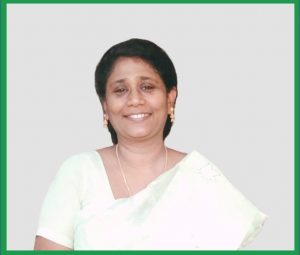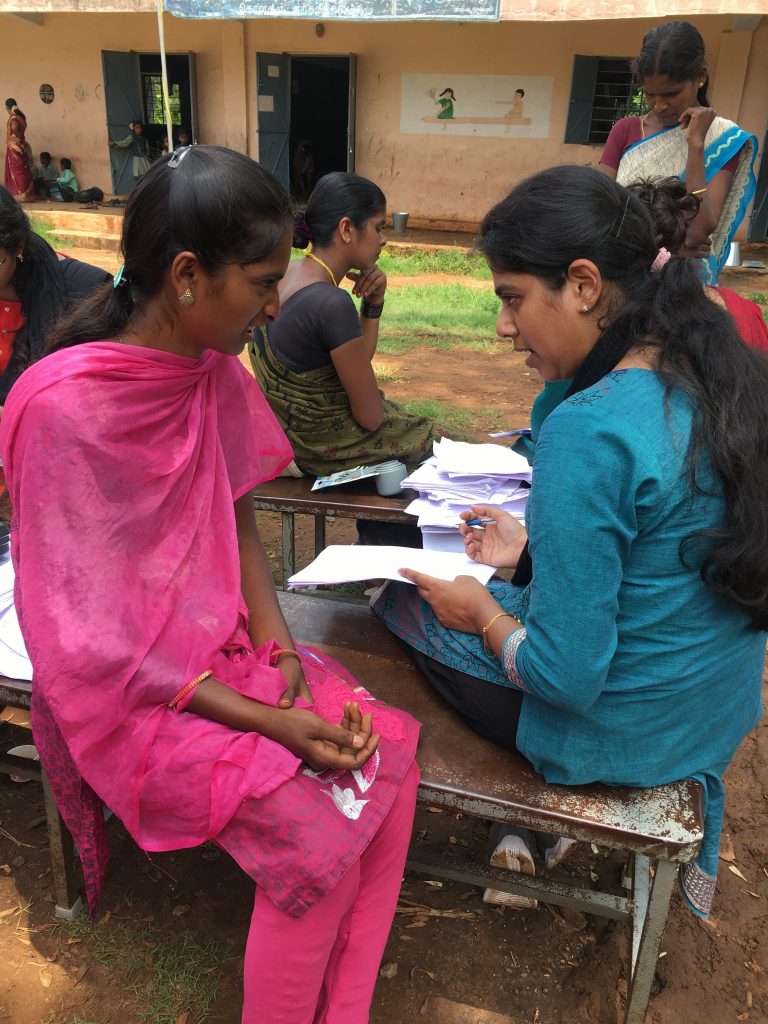Going into the Community to Learn
 “The United Board introduced me to service-learning,” Annette Beatrice, associate professor in nutrition at Women’s Christian College (WCC) in India, said in a recent interview, and several service-learning projects have deepened her understanding of its value to students, teachers, and communities. A United Board grant enabled her to design a project on complementary foods, and she developed 50 simple recipes for soups, porridges, and desserts, using locally available foods, using low-cost, locally available foods. She and her third-year Dietetics students standardized the recipes in the laboratory and then went into the community to demonstrate the recipes to mothers at an outreach center connected to WCC. “That project was a small beginning for me,” she recalled. “I thought of it as community service, something that benefits the community.”
“The United Board introduced me to service-learning,” Annette Beatrice, associate professor in nutrition at Women’s Christian College (WCC) in India, said in a recent interview, and several service-learning projects have deepened her understanding of its value to students, teachers, and communities. A United Board grant enabled her to design a project on complementary foods, and she developed 50 simple recipes for soups, porridges, and desserts, using locally available foods, using low-cost, locally available foods. She and her third-year Dietetics students standardized the recipes in the laboratory and then went into the community to demonstrate the recipes to mothers at an outreach center connected to WCC. “That project was a small beginning for me,” she recalled. “I thought of it as community service, something that benefits the community.”
Over time, and through subsequent projects, Dr. Annette realized that the benefits of service-learning can flow in multiple directions. Service-learning enabled her students to put academic theory into practice and hone their practical skills, and it also gave them opportunities to learn from people from different walks of life. For one project, supported by the United Board, she and her students traveled to a village situated at the outskirts of the city, where they explored conditions that contribute to high levels of anemia among children. The students learned folk songs and dances, and used them to educate children about nutrition. Another recent project focused on the nutritional needs of transgender women. Dr. Annette and her students took an inclusive approach to the project, as they invited the transgender women to the campus and responded to their requests to learn how to prepare healthy foods in the home science laboratory. A current project combines research with a service-learning component, and focuses on the nutritional status and empowerment of women in the tribal population of Kolagur district, Yercaud.

WCC students assess the nutritional status of community members.
Even with these experiences in service-learning, Dr. Annette felt she needed to know more about its pedagogy. “Am I following the right strategy?” she asked herself. “I wanted clarity about its practice.” That thirst for information brought her to the United Board’s Virtual Consultations on Service-Learning, held from August through November 2020. Several steps in the service-learning process stood out for her: systematic evaluation, reflection, and dissemination. “After every phase there should be reflection,” she said, so that students can transform experience into learning. Dissemination is equally important. “We stimulate interest when we share what we learn with the rest of the class, with the student community, and with faculty,” she said. “Information from the project should be disseminated – and celebrated.”
For Dr. Annette, the possibilities to incorporate service-learning in the curriculum seem unlimited. “Every course lends itself to the community,” she said, “and even a small service-learning component adds meaning to academic learning.” These projects were possible only through the support of the leader of the institution. She urges teachers and students to “go into the community and learn” and, as they encounter the lives of others, better understand their own strengths and weaknesses, reflect on challenges, and promote whole person development.
Dr. Annette Beatrice was a 2008-2010 United Board Fellow.
